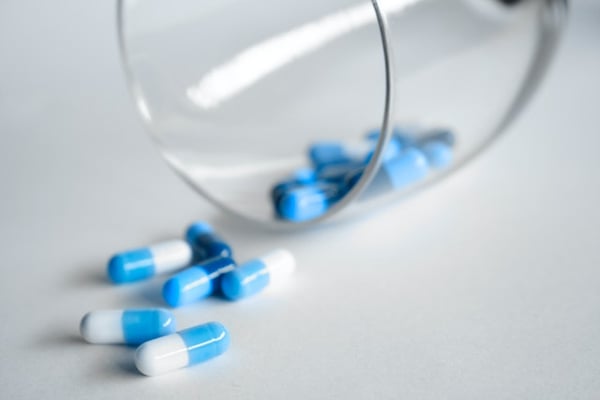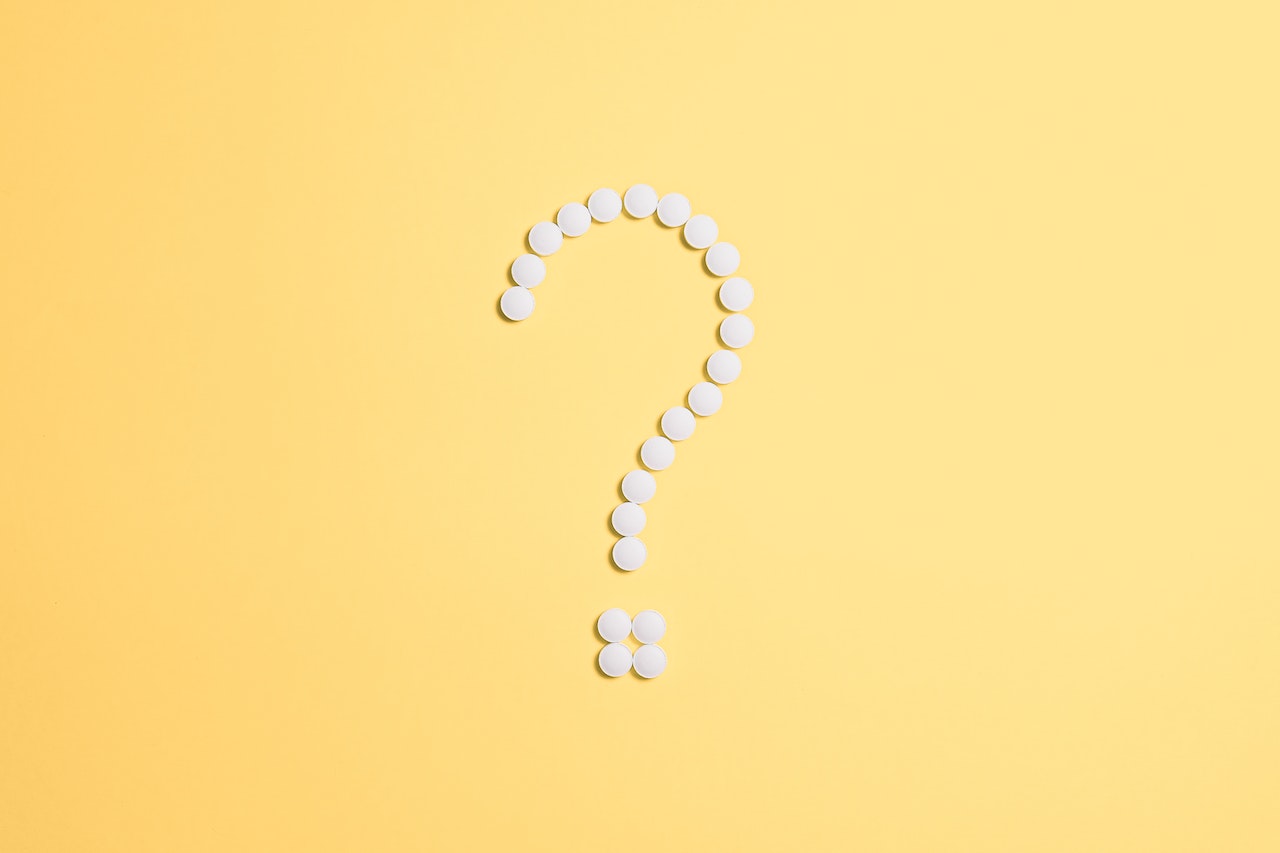Popular opinion often claims that the use of ADHD prescription drugs can lead to dependency, drug abuse, or cause people to develop addictions later in life. However, that’s wrong.
In fact, studies show that medication for ADHD in early life actually decreases the likelihood of developing a substance use disorder.
Nevertheless, people with ADHD are still prone to addictive behaviors. The proportion of ADHDers in treatment for substance abuse or addiction is disproportionally high compared to the overall population. Let's explore this in more detail.
Too long; didn’t read
- ADHD medications do not cause addiction.
- If taken as prescribed and under the supervision of a physician, there's still a chance of dependency.
- Addiction and ADHD share close roots and mechanisms, which is why ADHDers are at risk of developing a substance use disorder
- If you take ADHD medication, never change the dose without consulting your physician.
If you suspect that you might be addicted to or abusing substances you can get help! Some resources for facts and help include:
The addiction center, American Addiction Centers, and the National Institute on Drug Abuse
Misconceptions about ADHD medication
“Habit-forming” or “hooked” are buzzwords often used in discussions about ADHD, prescription drugs—stimulants like Adderall or Ritalin—and addiction.
While, technically, ADHD medication treatment is a form of “drug use" ... But the important nuance here is that it's not drug a-buse. Yes, stimulants have addictive potential. But the outcome - developing an addiction or not - depends on how they're used.
If taken in prescribed doses and under a physician's supervision, there’s no evidence that stimulants can cause addiction. In fact, if ADHD is treated with medication in early years, the likelihood of forming a substance use disorder (SUD) later in life decreases!1,2
Understanding the difference: Dependence vs. addiction
The difference between dependence and addiction is a little complicated, but only because the terminology has changed over the years, and is often used interchangeably.
To clarify: the term “addiction” has been abandoned in diagnostics. Addiction is now referred to as substance use disorder (SUD). Substance use disorder can be diagnosed when two or more (of 11) SUD symptoms are present over a 12-month period.
Symptoms of substance use disorders
- Loss of control and risky use
- Cravings or urges to use
- Inability to stop or reduce use despite knowing about harmful consequences
- Continued use despite personal, health, or financial problems caused by usage
- Tolerance – a need for increasing amounts of the substance to achieve desired effect
- Withdrawal symptoms when reducing use
Drug or substance dependence is no longer classified by the DSM-V criteria. However, it can be characterized by symptoms of withdrawal and tolerance.
Furthermore, there are two types of dependence: psychological dependence and physiological dependence.
ADHD medication
Physicians almost never cut ADHD medication on the spot. Fading them out is common practice. That is, because symptoms of withdrawal are not uncommon. It's also possible to build up a tolerance of ADHD medication, in which case the physician might raise the dosage.
So, it's not uncommon that people treated with ADHD medication develop a dependence on the drug.
However, that doesn’t mean an addiction or SUD will occur. That happens only if the medication is abused, or taken for recreational, non-medical use, or in higher doses than prescribed.
Important: never change the dose of any medication without consulting your physician, and only use it for the prescribed purposes!
Signs of ADHD medication misuse or abuse
ADHD medication might be misused or abused, if:
- One wants to discontinue the use, but is struggling to
- The dosage is increased continuously to achieve the same effect
- Medication is used to achieve a “high”
- Symptoms of withdrawal appear once the use is discontinued
- Excessively taking 'medication vacations' for the sole purpose of stocking up on capsules or pills
Why are people with ADHD more at risk for developing an addiction?
Two key facts:
- The prevalence of ADHD in the general population worldwide is estimated at 7%
- The percentage of people in treatment for substance abuse living with (diagnosed) ADHD is estimated at 25%
My point? Think about the gray zones - imagine how many people with ADHD struggle with a substance abuse disorder, but aren’t in treatment.
A 2016 study examined ADHD among patients seeking treatment for cannabis use disorder*. It concluded that between 34% and 46% of the patients had ADHD.3 So -why do so many people with ADHD develop substance abuse disorders?
*There is controversy about this 'disorder'; this article is not reflective of the author's or company's views on this controversial condition.
ADHD and addiction: Shared neuroscience
Both ADHD and addiction have an effect on two areas of the brain. These brain regions are associated with:
- Motivation
- Incentive salience
- Impulsivity
- Error detection
- Executive functions
- Goal-directed behavior
Both ADHD and addiction also alter the production of dopamine.4
The stages of becoming addicted to ADHD medication
1. Binge, intoxication, and impulsivity
The first step of addiction is the intoxication - where a person is looking for a pleasurable experience. With ADHDers, the initial use will most often involve an element of impulsivity.
Alternatively, people with ADHD may initially misuse their medication as a way to become more focused or motivated. Eventually, their tolerance builds, and they need more and more of the medication to feel the same effects.
2. Withdrawal and diminished sensitivity to reward
A person who has been abusing their ADHD stimulants will often experience withdrawal symptoms or other negative effects when they stop using the substance at high volumes. This is largely due to the diminished activation of the reward circuits.
And people with ADHD naturally have a very low sensitivity to reward in the first place.
3. Preoccupation, anticipation, and impaired control
At this stage, a person begins seeking out the substance - they 'crave' it. They've likely run out of their own prescription at this point, and are likely searching for other ways to obtain the medication.
This stage is associated with the area of the brain responsible for executive functioning, or the prefrontal cortex, an area affected by ADHD. It's associated with impulsive and reward-seeking behavior.
Signs of self-medicating and misuse
Another factor of the elevated risk of ADHDers to develop addiction is the self-medicating effects that the drugs may have on ADHD symptoms.
In a podcast, Dr. David Teplin points out that it's not uncommon for people with ADHD to experiment with substances that initially decrease ADHD symptoms. Also - the flood of dopamine that many substances prompt is very appealing to the ADHD brain.
Furthermore, it isn’t necessarily always substances that ADHDers can grow reliant on, or addicted to. Excessive sports, eating or gambling are just as common.







